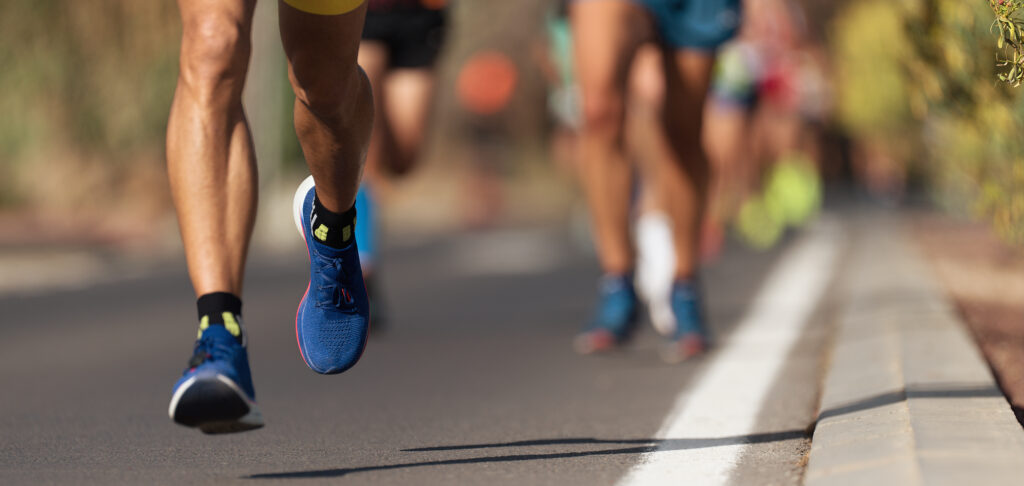
Magnesium is one of the most overlooked electrolytes of our century. There are so many biological processes that this mineral is a part of but yet, there are no good universally established ways to determine the whole-body stores of magnesium of an individual.
The reason this is important, is that you can have magnesium deficiency and not know about it. It’s not that uncommon.
Standard chemistry panels (Basic or Comprehensive metabolic panel) done at labs even during “Well visits” do not contain serum magnesium as one of the default screening laboratory checks. Not that serum magnesium tells the whole story, but at least one can pick up a clear deficiency with it.
Triathletes engaged in endurance exercise, particularly those grueling triathlons, ultramarathons etc. train for hours prior to the actual race. Their caloric need is tremendous. Yet, half of the triathletes do not have appropriate nutrition guidance.
Most do not practice regular hydration practices. Some still follow the 15 g of sugar/hour rule. Some use a hydration calculator based on anecdotal evidence to assess their fluid requirements. There is a lot of guesswork and very little standardization.
When we interviewed a group of triathletes during our creation of MAGNAK®, we found that fewer than 20% of them had even heard about magnesium.
The truth is triathletes need at least 20-50% more magnesium in their diet on a daily basis. An average American should get at least 400 mg of magnesium daily. Less than half of the population meets this guideline.
Triathletes should be eating a magnesium rich diet from the day they commit to this sport. Their diet should contain at least 600 mg of magnesium per day. Most do not get enough.
Magnesium is involved in a variety of biological processes in our body. When the body is hyperactive, as in athletes, these processes are up 3-4 fold. And so comes the need for all the nutrients.
Proteins (or amino acids), carbohydrates and healthy fats are routinely discussed in diets by nutritionists and sports coaches. When it comes to electrolytes, particularly trace minerals, these all seem to be clumped together and the knowledge is trace.
The reason magnesium is so vital for athletes is that it can help with performance and recovery. Muscles need ATP and magnesium participates in phosphorus generation.
Magnesium also is vital in maintaining the body’s immune function. Triathlons can be hard on the joints and the back. Most triathletes routinely get sore joints particularly knees and ankles. Leg edema is common. A lot of these are driven by the inflammation that follows the herculean activity.
Magnesium can help reduce swelling and inflammation after workouts. A combination of magnesium and vitamin C has been utilized by sports coaches as it helps manage soreness and pain after a triathlon.
Magnesium deficiency in athletes can also lead to a continuous loss of potassium from the kidney through the urine. In many ways, you need magnesium to hold on to potassium. In the absence of magnesium intake, potassium can be lost from the body leading to a dual deficiency. This can result in severe fatigue, weakness and cramps.
Not surprisingly, athletes continue to take potassium supplements which do not seem to help. Rightly so, because the deficiency is largely from magnesium not just of potassium.
Magnesium can also help athletes after endurance training because any high intensity activity is associated with muscle microtears and require a repair process.
While protein intake can help with repair and regeneration, guess what is required as a cofactor in the enzymatic activity of protein synthesis? Magnesium. Thus, magnesium deficiency can prevent protein rebuilding and muscle growth.
In some studies, magnesium supplementation of older individuals has shown to improve strength after a 12 week period.
Despite this, clinical trials of using magnesium in triathletes have never been done. Anecdotal studies do exist that include assessment of electrolyte levels in the blood during and after a triathlon. Such studies are unlikely to yield too much data unless it is easily obvious.
Unfortunately, electrolytes shuttle a lot in between blood and tissues and levels of electrolytes can be affected by simultaneous water loss from the body, thereby leading to a misinterpretation of seemingly normal electrolyte concentrations despite a large total body deficit of that particular salt.

Athletes can benefit from a high magnesium intake in numerous ways— magnesium rich diet or supplementation with a mix such as MAGNAK® can help replete the magnesium subclinical deficiency that is common in athletes.
A magnesium-rich diet can help triathletes with strength and endurance training, improve muscle performance, reduce inflammation and swelling and shorten recovery time.
But benefits for athletes from magnesium cannot be limited simply to an increased intake of just this one electrolyte. In order for magnesium to be absorbed and retained, it must be supplemented by other nutrients-particularly sodium and potassium.
Another benefit of magnesium for athletes is its ability to reduce restlessness and allow a better quality of sleep. Many athletes have claimed to have increasingly better quality of sleep after taking magnesium supplements, particularly magnesium citrate or glycinate.
Some athletes have also experienced less palpitations with magnesium containing salts. Magnesium sulfate infusions are commonly given to patients in a hospital to reduce abnormal cardiac rhythms. Symptomatic palpitations can be treated with magnesium salts (oral or IV).
Triathletes without a doubt, should be on a high magnesium diet. Good sources for magnesium include green leafy vegetables, bran cereal, nuts such as almonds and walnuts, poultry, fish, natural beverages such as coconut water and almond milk.
At time, specialty electrolyte powders such as MAGNAK® will likely be needed. This is because our dietary sources containing free magnesium are limited. And despite a good natural magnesium-rich diet, the total intake of 400 mg may be hard to meet.
Triathletes need even more- about 600 mg of magnesium in a day. For those with such greater need, electrolyte powders that provide magnesium, potassium as well as sodium, all electrolytes depleted with sweating or exercise, offers the best choice.
Athletes can also use supplements such as magnesium citrate or glycinate. Other than some GI upset/diarrhea at higher doses, magnesium supplementation is not associated with any real toxicity.
About 400-800 mg of magnesium is routinely used by healthy individuals unless they have kidney disease where magnesium levels may need to be checked periodically using a blood test.
Triathletes need a lot of magnesium, about 50% more than average individuals. Triathletes must start with a nutrition and hydration program and incorporate electrolyte rich diets as soon as they commit to the sport.
Despite eating a magnesium rich diet, the total dietary need for about 600 mg of magnesium may be hard to meet with dietary sources alone.
That’s why we created MAGNAK®. This balanced electrolyte mix allows rapid absorption of magnesium (100 mg per serving) coupled with potassium and sodium to keep triathletes rehydrated during endurance feats. So they can endure longer, cramp less and recover faster!
